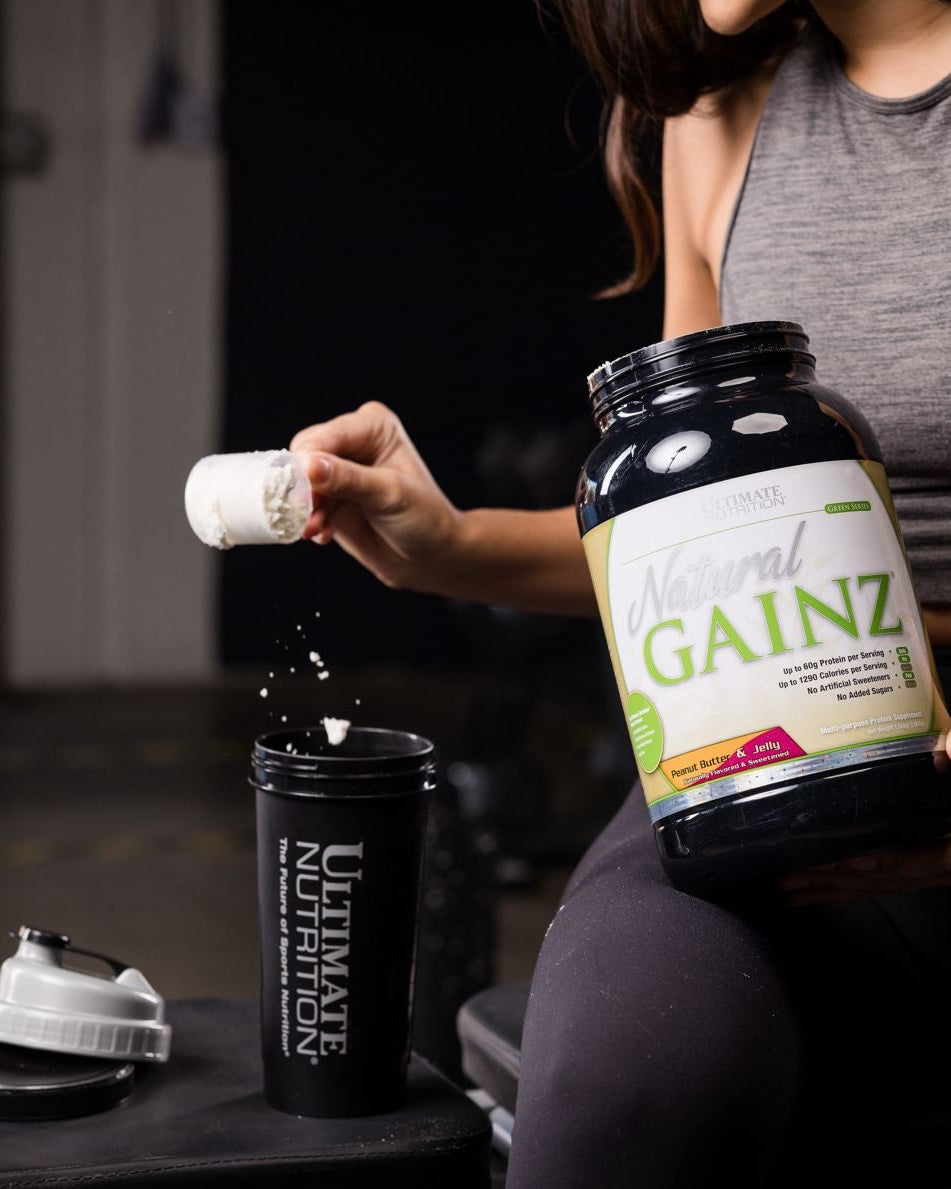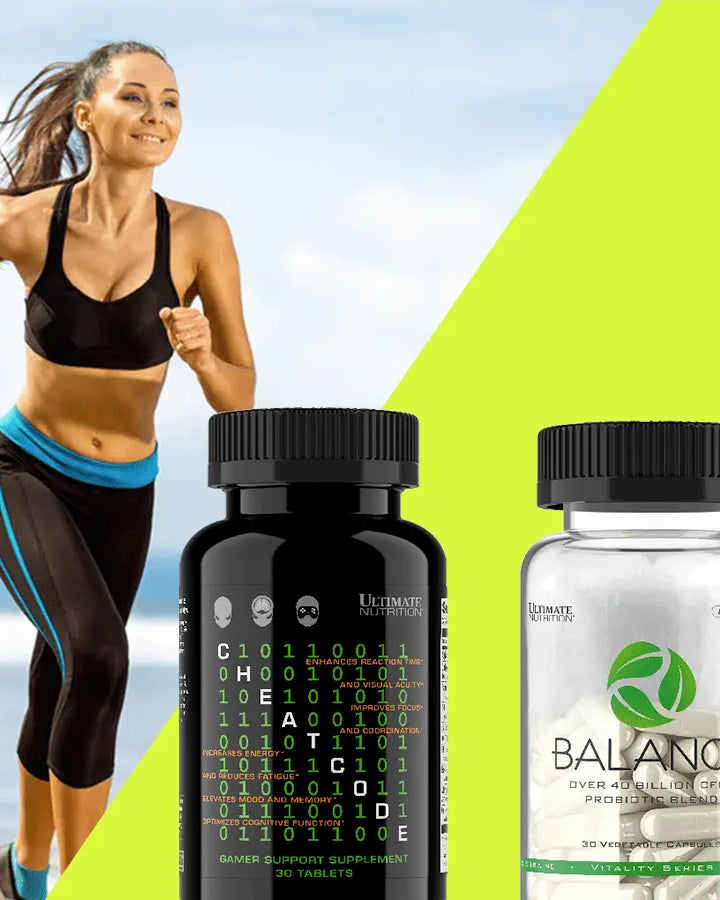Embracing the natural process of aging is a part of life's journey, and as we gracefully grow older, preserving our muscle mass becomes increasingly vital. After hitting the age of 30, our muscles gradually start to decline, which could lead to the unwelcome condition known as sarcopenia - a progressive loss of muscle mass, strength, and function attributed to aging. But fear not, as there are ways to combat this issue and maintain a strong, healthy physique well into your golden years. One such effective strategy involves the incorporation of whey protein into your diet.
Whey protein, a high-quality complete protein derived from milk, contains all the essential amino acids that our bodies crave but cannot produce on their own. This natural powerhouse makes it an ideal ally in the battle against age-related muscle loss, aiding in muscle maintenance and even promoting growth. By understanding the significance of whey protein and how it operates, you can harness its full potential to support your overall health and fitness goals.
In this article, we will explore the profound impact of whey protein in combating the decline of muscle mass with age. We'll delve into how it works within the body, unlocking the secrets of its muscle-nourishing properties. Additionally, we'll provide you with valuable insights on seamlessly integrating this muscle-preserving gem into your daily diet. So, let's embark on this journey together, discovering the wonders of whey protein and its role in keeping your muscles strong, vibrant, and ready to take on life's adventures.
Understanding the Role of Whey Protein in Aging and Muscle Maintenance
Whey protein boasts a rich content of leucine, a crucial branch-chained amino acid (BCAA). Leucine's significance lies in its ability to drive muscle protein synthesis, which fosters muscle growth. As we age, muscle protein synthesis naturally declines, leading to muscle loss. However, incorporating leucine-rich meals, such as whey protein, can help stimulate this process, potentially countering age-related muscle deterioration.
Another advantage of whey protein is its impressive digestibility. As a fast-digesting protein, it rapidly reaches the muscles post-consumption, ensuring swift availability of essential amino acids for muscle protein synthesis. This convenience, coupled with its versatility, makes whey protein an easy dietary addition, especially for older adults facing reduced appetite or difficulty obtaining adequate protein from other sources.
 Effects of Aging on Muscle Mass and the Role of Whey Protein
Effects of Aging on Muscle Mass and the Role of Whey Protein
As we age, our bodies undergo various changes, including the natural decline in muscle mass and strength, referred to as sarcopenia. This condition typically begins around 30 and accelerates after 60, leading to frailty, reduced activity levels, and an increased risk of falls and fractures. However, sarcopenia isn't solely a result of aging; it is also influenced by our nutritional intake, particularly protein consumption.
Research has demonstrated the crucial role of dietary protein, with a special emphasis on whey protein, in slowing down, preventing, or even reversing sarcopenia. Proteins provide essential amino acids, the building blocks of muscles. Among the different protein sources, whey protein stands out due to its high biological value, making it exceptionally efficient for the body to construct and repair tissues, including muscles. Additionally, whey protein is rich in leucine, a proven stimulator of muscle protein synthesis, which aids in preserving muscle mass as we age.
The Science Behind Whey Protein and Muscle Maintenance
As we age, our bodies experience "anabolic resistance" a phenomenon where they become less responsive to the protein in our diet. This means that to stimulate muscle protein synthesis, we require more protein than we did when we were younger. Thankfully, whey protein offers a solution to this challenge. Its high leucine content acts as a powerful tool to overcome anabolic resistance, making our bodies more receptive to protein and, in turn, better at building and preserving muscle mass.
Numerous studies have highlighted the effectiveness of whey protein supplementation in promoting muscle maintenance and growth. In fact, a study published in the American Journal of Clinical Nutrition demonstrated that whey protein significantly increased muscle protein synthesis in elderly men compared to other protein sources. Not only does whey protein help maintain muscle mass, but it also enhances strength and physical performance in older adults. Its potential to positively impact aging muscles makes it a valuable addition to any fitness regimen.
How to Integrate Whey Protein into Your Diet As You Age
Effectively incorporating whey protein into your diet revolves around mastering portion sizes, timing, and complementary foods. For older adults, the recommended protein intake per meal is about 25 to 30 grams, known to stimulate muscle protein synthesis optimally. This translates to approximately one to two scoops of whey protein powder.
Strategic timing plays a vital role in maximizing whey protein's muscle maintenance benefits. Consuming whey protein shortly after exercising can boost muscle repair and growth, as the body's protein demand is at its peak during this period. However, for consistent results, it's wise to evenly distribute protein intake throughout the day, maintaining a steady muscle protein synthesis rate.
While whey protein is advantageous, it should not replace whole foods entirely. Instead, it complements a well-rounded diet rich in protein from various sources, such as lean meats, fish, eggs, and plant-based proteins like legumes and nuts. By combining whey protein with a balanced intake of carbohydrates and fats, you provide the necessary energy for daily activities and optimal muscle function. Embrace this comprehensive approach to nourish your muscles and promote overall health.
 Precautions and Considerations
Precautions and Considerations
Whey protein is generally safe for most individuals, but responsible usage is essential, as with any supplement. Overconsumption may lead to digestive issues like bloating, cramps, or nausea. If you have kidney disease or a medical condition requiring restricted protein intake, consult a healthcare provider before increasing protein consumption.
While whey protein provides a quick and convenient protein boost, it should not be relied upon as the sole protein source. Whole foods offer a diverse range of nutrients that whey protein alone cannot provide. Therefore, maintaining a varied, balanced diet is crucial to meet all nutritional needs.
Preserving muscle mass with age goes beyond nutrition; it involves regular resistance and aerobic exercises. A holistic approach comprising balanced nutrition, consistent exercise, and adequate rest is key to maintaining muscle mass and overall health as we age. Prioritizing these factors can lead to a fulfilling and healthy aging journey.
 Your Take Home Message
Your Take Home Message
As we age, protein becomes crucial for preserving muscle mass, and whey protein stands out as a valuable and easily digestible source of this essential nutrient. With its high leucine content and fast digestibility, whey protein efficiently stimulates muscle protein synthesis, countering age-related muscle loss.
Incorporating whey protein into your diet can prove a practical and effective strategy for maintaining muscle mass as you age, especially when combined with regular exercise and a balanced diet. However, individual health circumstances should be taken into account, and seeking professional advice when needed is essential. Remember, every step toward a healthier diet and lifestyle is a step toward a more vibrant and fulfilling future, regardless of age.
The information provided in our articles are meant for informational and educational purposes exclusively and should not be considered as medical advice. It is essential to consult a healthcare professional before starting a new nutritional product and/or making significant changes to your diet and/or starting a new exercise regime. These products are not intended to diagnose, treat, cure, and/or prevent disease.






















Comments
A well-designed aged care food menu ensures that residents receive the necessary nutrients to support their health, energy levels, and overall well-being.
https://catercare.com.au/our-food/